Born in Petaling Jaya, Malaysia, Regina Yau studied at Royal Holloway, University of London before going to Oxford to read for an MSt in women’s studies and an MSt in Oriental studies. After working in public relations, she now combines her career as an activist fighting violence against women with her work teaching English. Yau is Founder and President of The Pixel Project, a virtual volunteer-led global non-profit that raises awareness, funds and volunteer power for the cause to end violence against women at the intersection of social media, online communities, new technologies, and popular culture/the Arts. This narrative is excerpted from an interview with the Rhodes Trust on 4 October 2024.
Regina Yau
Malaysia & St Hugh's 2001
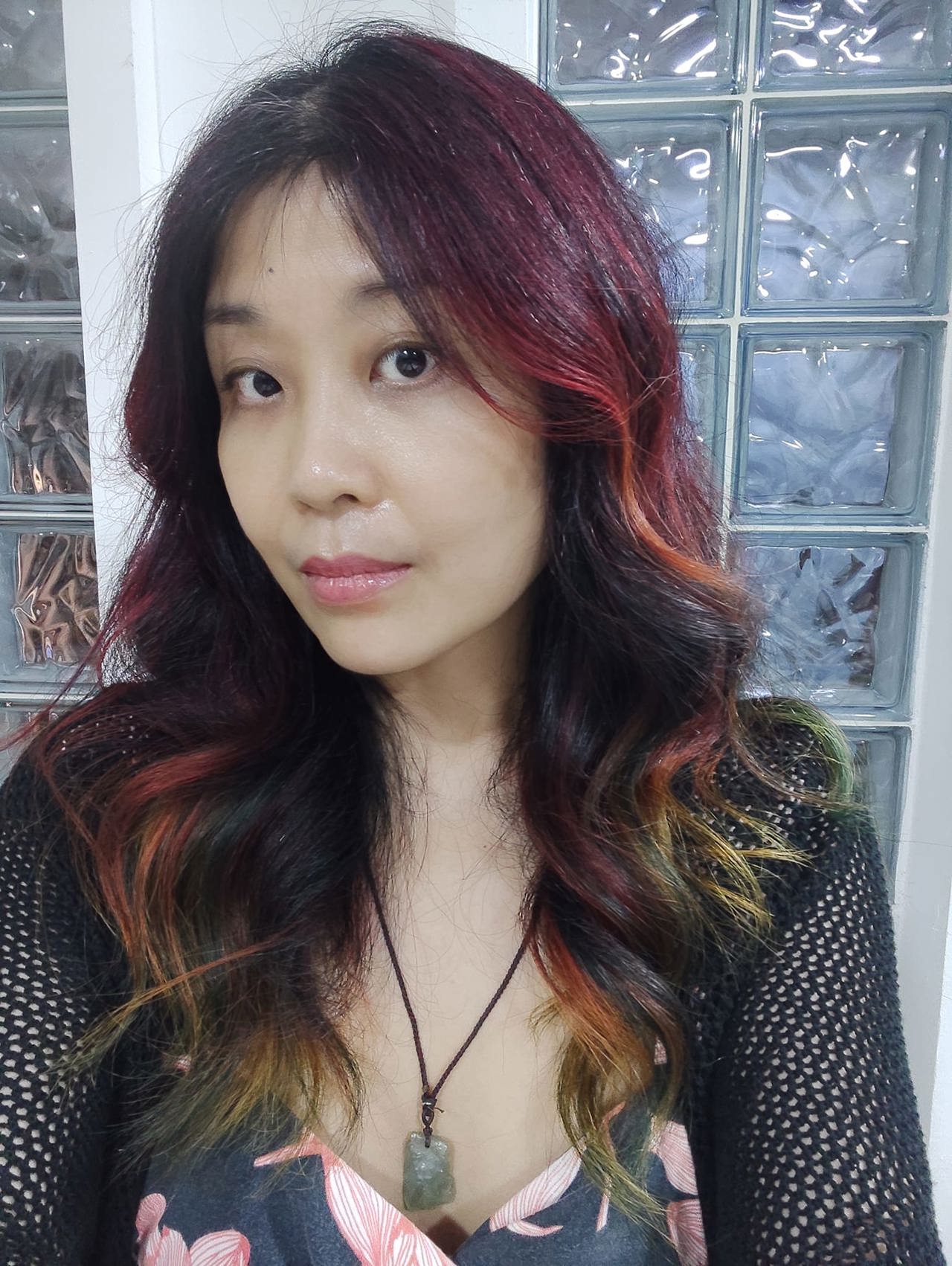
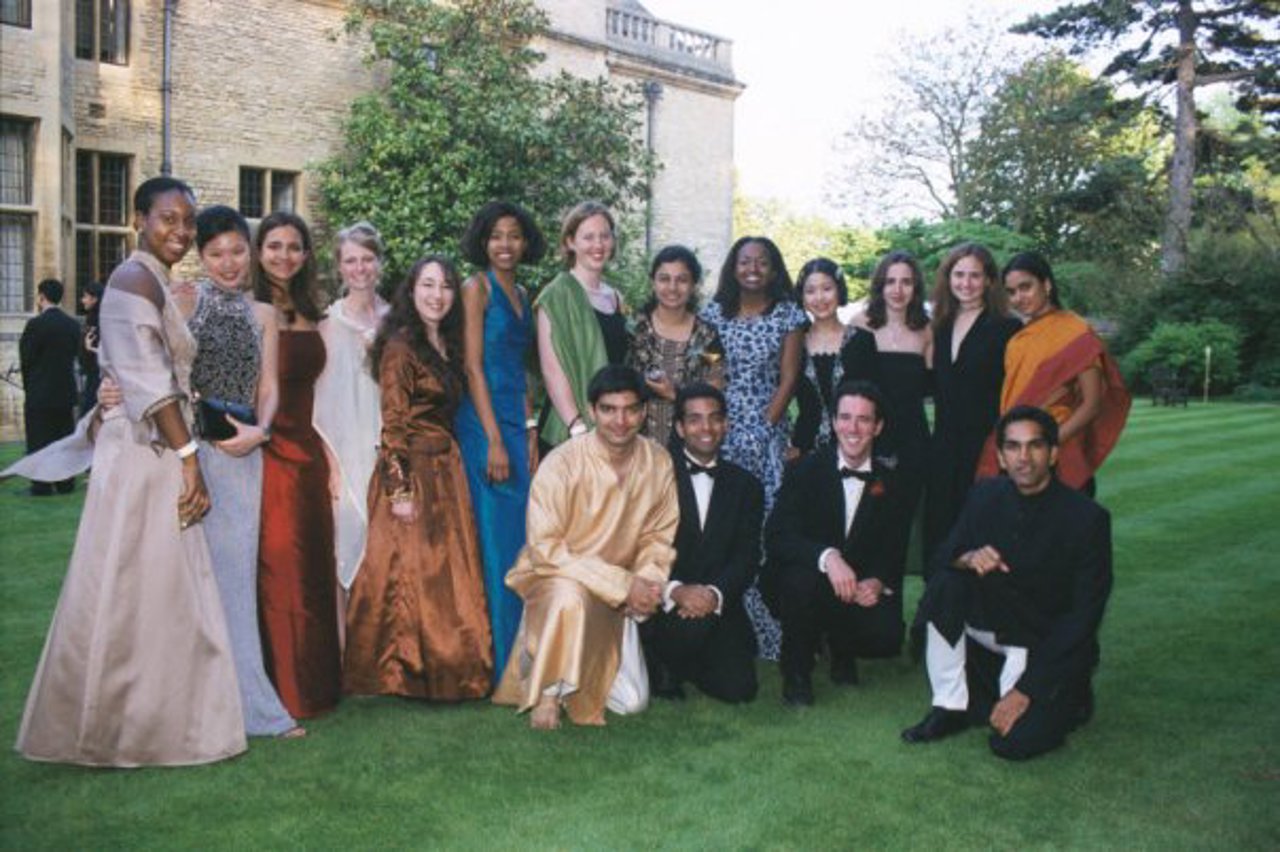
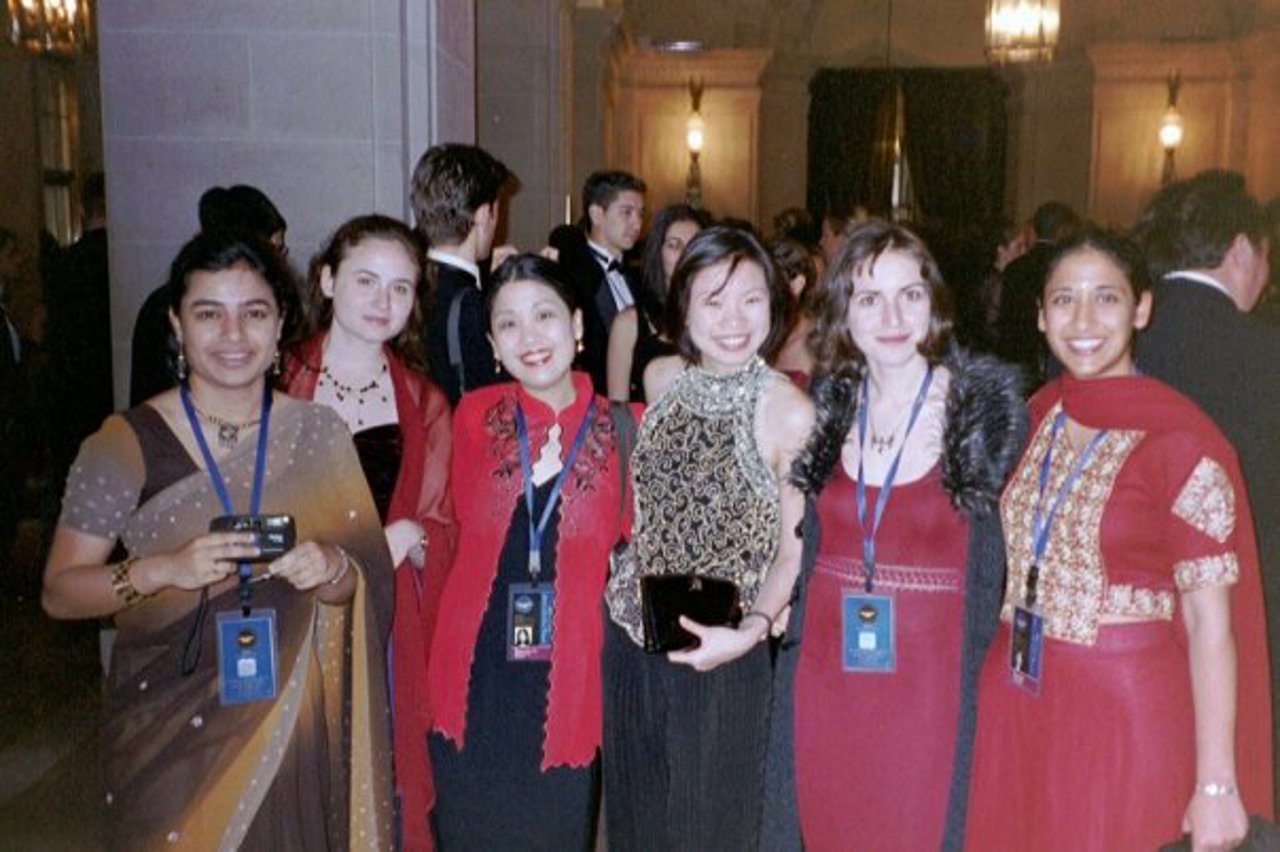
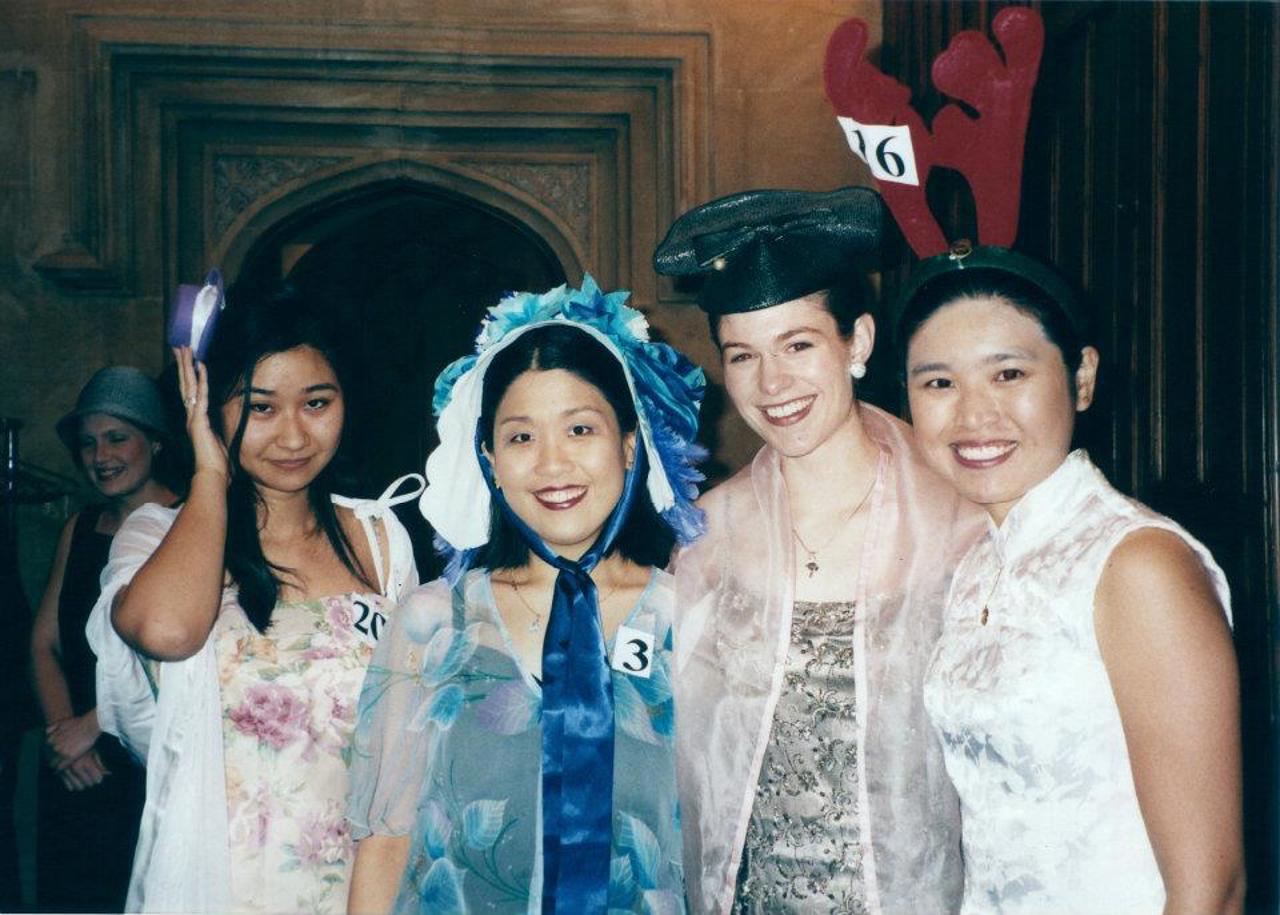
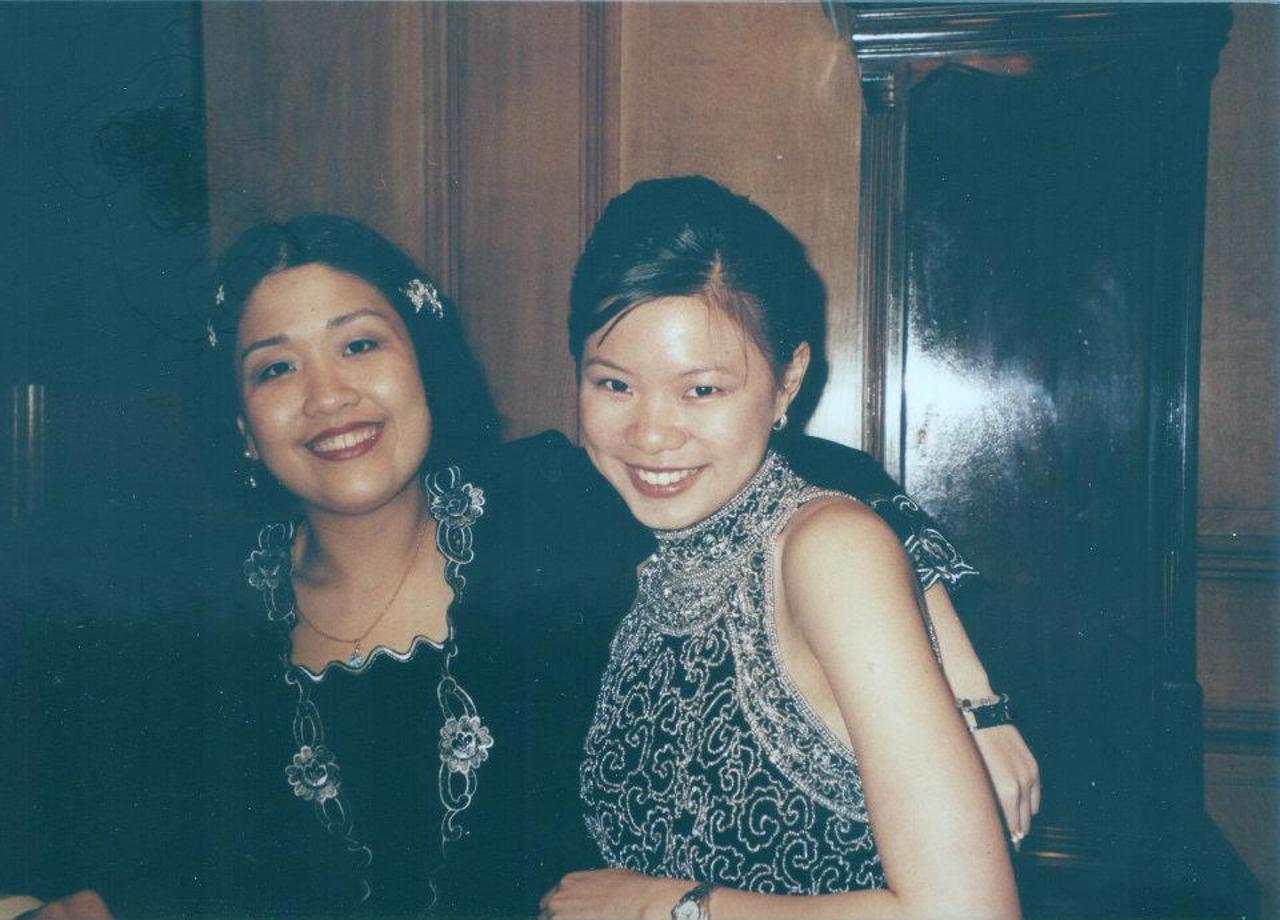
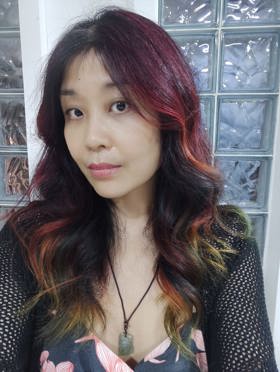
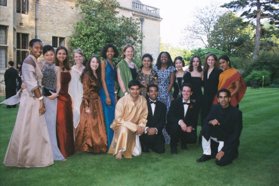
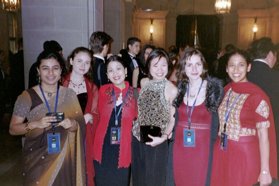
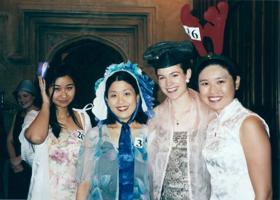
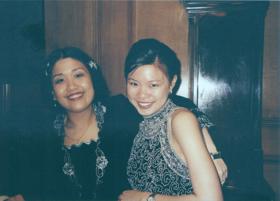
‘I started being a feminist at the age of 12’
I was born near Kuala Lumpur, but when I was about three or four years old, we moved back to my father’s hometown of Ipoh to help my grandparents. I come from a very middle-class background, with an ambitious tiger mom. My father comes from a family which, unusually, values educating their daughters, even though I’m of Chinese heritage and we don’t have the best track record in educating women. By the time I came along, I was the second or third generation to go to university. Even so, when I looked at our family and at my younger brother, I saw there was some preferential treatment, how being male means automatically getting unearned privilege. So, I started being a feminist at the age of 12, and within my family, that caused an uproar for the rest of my life.
As a child, I was an avid reader, and I also loved pop culture. I watched movies and TV series and I listened to a lot of music, and I was lucky that my parents could afford to give me music lessons. I wrote poetry and stories, and I had notebook upon notebook stacked with fashion sketches. That childhood love of pop culture actually laid the groundwork of The Pixel Project, because we work at the intersection of social media and pop culture.
We spoke English at home, but my father wanted me to learn Chinese. So, I was sent to a very strict Chinese Catholic girls’ school. I struggled there because I was different in every single way, including being fat; and I was bullied en masse by my classmates until I was 15 when some of my teachers realised what was happening and put a stop to it.
On applying for the Rhodes Scholarship
I decided to do a degree in English literature. This came after several years of negotiation with my father. I was sent to the UK because my father was educated there, and he decided that if the UK was good enough for him, it was good enough for me.
I chose Royal Holloway on the basis that they offered modules that included the chance to study science fiction and fantasy. That made it clear to me that they would do things differently from a more traditional English degree. I was also drawn to the fact that they were ranked really highly for teaching and that they had started as an all-women’s college. I knew instinctively that I would thrive if I went to a university with a history of educating women.
I settled into Royal Holloway extremely quickly and, for the first time in my life, I was really happy. The teaching was stellar, and the department was so progressive. It was the perfect fit for me, and it’s where I really grew into myself and found my voice. It felt like a safe space where I could push some boundaries. I got a first-class degree, but it was the chance to figure out who I was that felt like the real accomplishment.
I wanted to do postgraduate study, and my father was supportive, but he made it clear that he wouldn’t be able to pay for me. He was the one who said, ‘Why don’t you try for the Rhodes Scholarship?’ I’d actually applied to Oxford for undergraduate study but not been given an offer, so, I thought, ‘Let’s try again.’ I applied while I was on a backpacking trip through Europe, and I remember staying at friends’ places and frantically typing my essay and emailing professors to ask for recommendations. I got the summons to go back to Malaysia for the interview, where I spent an hour answering questions and drinking a whole jug of water as I did so. Then I thought, ‘Right, I’ve finished this. I’ve got other scholarships to apply to, and I need to get back to uni. I can’t miss any more class time.’ When I learned I’d won the Scholarship, I was flabbergasted.
‘A huge derailment’
At Oxford, I chose St Hugh’s College for the same reason I chose Royal Holloway, that it has a history of educating women. That meant they really looked after you. I struggled to fit in at first, but eventually, I met people who would become my friends, both inside and outside the Rhodes community. Oxford is a great place for getting an education and training your mind, but its value also lies in the connections you make there. That can sound transactional, but it’s not so much about career networking as about friendships that can be lifelong.
I went to Oxford with the plan to become a professor specialising in Anglophone literature of the women of the Chinese diaspora. I wanted that sort of career, a quiet one. I was still a feminist, but I wasn’t thinking about active feminism, of going down into the trenches, as it were. And then, my plans were derailed. I got chicken pox and had to take a term out. When I came back, I worked really hard, but I couldn’t catch up enough to get the first-class degree that I needed for a DPhil. It was a huge derailment.
‘Working for women’s human rights is my life’s calling’
After Oxford, I had to pivot. I was trying out different routes I could take into getting my career started, and I began by working in public relations. My first job was a real baptism of fire, and I actually got fired. I was so upset, but it turned out to be a blessing in disguise. I was still in touch with everyone at Rhodes House, and I asked for a meeting with Sir Colin Lucas, who was the Warden at that time. That was one of the defining moments of my career. He took the time to sit down with me and to listen, and then he said, ‘Well, Regina, you weren’t born to be a corporate shark. You were born to go to bat for the people who need you most.’ I thought about it, and I realised that the people who need me most are women and girls. For a long time, I hadn’t been involved in any feminist activism, but that was the start of the way back from the detour I had taken.
Working to combat violence against women and girls is my way of fighting the world’s fight. It is a challenge, to have a career that mixes volunteer work with teaching, and it is a challenge to have a career that isn’t seen as valuable in the patriarchal, capitalist world. People imagine that if you’re a Rhodes Scholar, you step right out of Oxford and into a fat-salary job, but it isn’t like that, especially if you’re from the global south. I have spent most of my career improvising and pivoting. My unpaid non-profit work takes up the majority of my time, because women’s human rights organisations and projects are the most under-funded in the world. My paid work teaching English takes up much of the remainder of my time, and I also do some editing and coaching work as well. Most people would say they have a day job and then spend some spare hours doing volunteer work, but for me, it’s the other way round. Working for women’s human rights is my life’s calling. I don’t regret any of the twist and turns of the last 15 years, because this is work that needs doing, and who else is going to do it?
‘Always help your other Rhodes sisters’
To all female Rhodes Scholars, I will say that unless the world changes, you will run into systemic obstacles at one point or another simply because you aren’t male, and especially so if you aren’t white or born into a first-world nation. That isn’t your fault in any way.
Unfortunately, it is completely normal. On a practical level, I would urge all women to ensure their financial independence. The world is not as accommodating and forgiving for women as it is for cis and heterosexual men, so, always have your own money. You need it
Female Rhodes Scholars from younger generations, we’re still fighting the good fight, and we’re only sorry that we haven’t been able to bring about change faster for you. My family took four generations to go from bound feet to Rhodes Scholar. So, we need to keep fighting on. And always help your other Rhodes sisters. I’ve known some Rhodes women who don’t do that, who drink the patriarchal Kool-Aid. But I know that as long as we work together, we can get there and make real change.
